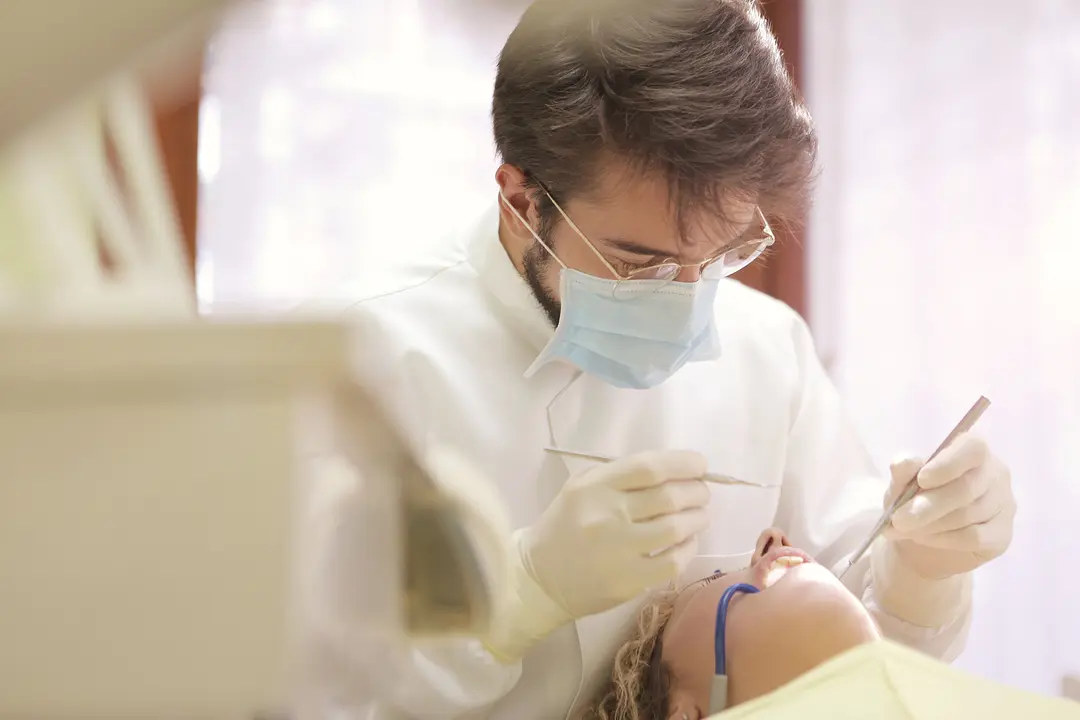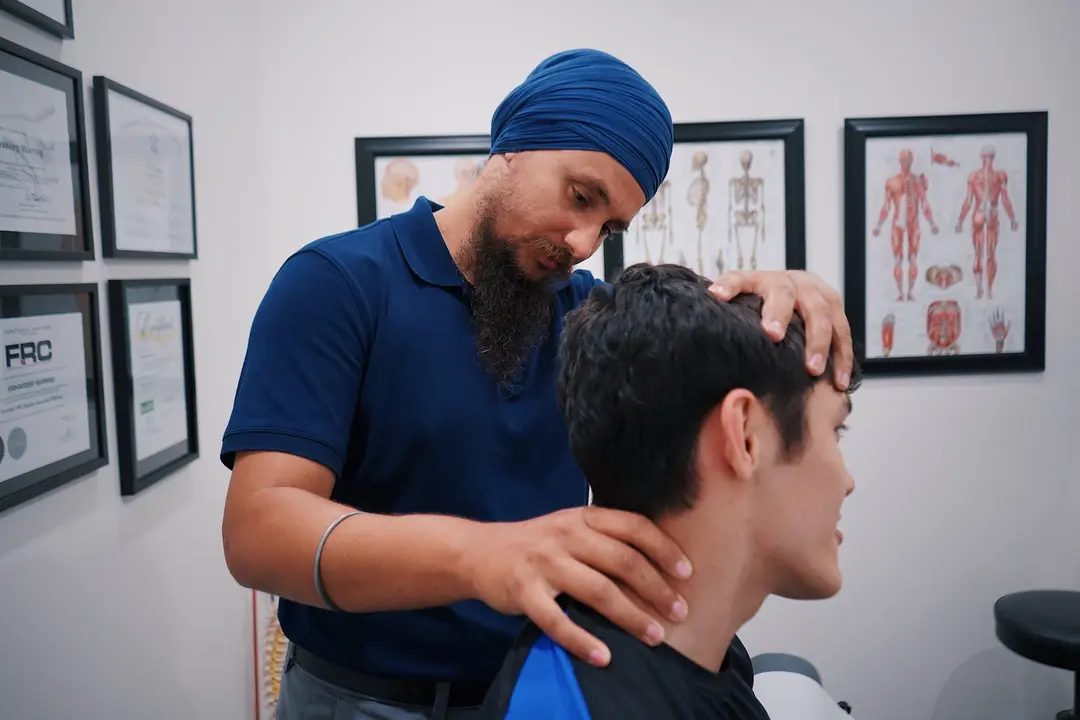8 Health & Medicine Degrees to Consider

Health and Medicine degrees are many and varied. By studying for a healthcare degree, you’ll play a central role in contributing to the health, welfare and well-being of the public.
A Health and Medicine degree offers an assortment of career opportunities across a range of industries – not just in the wards or hospitals!
What Will I Learn Studying for a Health and Medicine Degree?
Whether you’re drawn to hands-on clinical experiences or the prospect of making groundbreaking contributions to medical research, a Health and Medicine degree equips students with a diverse and valuable skill set for a future career in healthcare.
I. Foundation of medical sciences
A Health and Medicine degree provides a comprehensive overview of the fundamental medical sciences like anatomy and physiology. Students study the structure and functions of organs, tissues and systems to gain a deep understanding of the body and how it responds to conditions and diseases.
You’ll be introduced to the fundamental principles of biochemistry, covering topics including biomolecules, enzyme kinetics and metabolic pathways, to help you comprehend biochemical processes in health and disease at the cellular and molecular levels.
II. Clinical and practical skills
Alongside in-class learning, students studying for a Health and Medicine degree have the opportunity to apply learnings to real-world settings. You’ll participate in clinical rotations, gaining hands-on experience in patient examination, diagnosis and medical procedures, and becoming familiar with the latest medical technologies and equipment.
Through practical experiences, you’ll develop effective communication with patients – a core skill in healthcare. You’ll learn how to interact with patients, take medical histories, provide clear explanations, and build strong patient-doctor relationships.
III. Specialisation and advanced topics
Throughout your degree, you’ll have the opportunity to explore various medical specialities – like cardiology, surgery, paediatrics and internal medicine – and delve into advanced medical topics to deepen your knowledge and prepare you for specialised roles.
Some universities also offer research opportunities where students can actively contribute to medical research through projects and clinical trials!
How Do I Choose a Health and Medicine Degree?
When choosing a degree, it’s important to consider your long-term goals and preferences, and choose a programme that’s right for you.
Here are some things to consider:
- Your career goals – which specific profession are you interested in pursuing?
- Degree specialisation – which specialisation best aligns with your interests and career objectives?
- Faculty and research opportunities – are there research centres or institutes affiliated with the programme?
- Clinical training – which clinical settings will you be exposed to?
Reflect on these questions when choosing a Health and Medicine degree!
8 Health and Medicine Degrees to Consider
Without further ado, let’s delve into eight different Health and Medicine degrees to consider!
1. Medicine
Medicine is often the first thing that comes to mind when we think of healthcare professions – but it certainly isn’t the only one!
Medicine allows you to work in close contact with patients, in an ever-stimulating and challenging environment. Additionally, if you’re not too keen on working in hospital wards, a degree in Medicine opens up opportunities to work in medical research, academic medicine and even policy-making – a varied, versatile and prestigious degree to pursue.
If you’re interested in a degree in Medicine, then our online Medicine summer school is the ideal opportunity to explore life as a medical student before committing to a five-year degree. You’ll study in engaging, live online medical sessions with an expert tutor, and at the end of your course, you’ll receive a Certificate of Achievement and a personalised Letter of Recommendation to boost your university applications!

2. Nursing
Nurses are arguably the most influential figures in the wards; they know the patients on the ward best and are the first point of contact for them and their families. Nurses play an essential role in promoting infection control, patient care and health.
Nurses are also active in the community, providing fundamental support and care to bed-bound and home-bound people, and supporting patients and families boundlessly.
Similar to a degree in Medicine, a Nursing degree can take you in different directions beyond patient care, including research, governance and policy-making, nursing education and administration.
3. Pharmacy
Pharmacists are central figures in hospitals and local communities. They ensure that medications are prescribed safely and appropriately, advise nurses and doctors in clinical settings, and act as the first point of contact for people with minor illnesses.
As you can imagine, a degree in Pharmacy goes far beyond clinical practice. Studying for a Pharmacy degree allows you to explore career paths like pharmaceutical research, pharmaceutical business and administration, and education.
If you’d like to learn more about the pharmaceutical field, we run Pharmacy-related online Medicine internships! You’ll have the rare opportunity to work closely with an expert mentor in the field, gaining practical and clinical experience.
4. Dentistry
A degree in Dentistry explores in-depth the dental sciences, oral health and dental treatments.
Oral disease and tooth decay are among the leading causes of morbidity in both the developing and Western world, so by practising dental science, you’ll play a crucial role in promoting the health and well-being of your community.
As part of your Dentistry degree, you’ll have the chance to explore orthodontics, oral surgery and dental research for a varied and stimulating career.

5. Public Health
The COVID-19 pandemic has shown us first-hand the importance of effective public health and infection control policies, and epidemiology and health promotion are at the heart of a degree in Public Health.
Opening up career paths in public health administration, health education, epidemiology and global health initiatives, a Public Health degree is certainly worth considering.
If you’re interested in public health and disease prevention, keep an eye out for our public health-related Politics internship programmes!
6. Biomedical Sciences
Biomedical scientists play a central role in advancing medical knowledge and innovations, integrating medical knowledge across other sectors such as engineering, chemistry and physics.
Again, the potential career paths are many! From diagnostic medicine to software and artificial intelligence development, a Biomedical Sciences degree integrates all the STEM subjects in order to advance medical practice and developments.
7. Allied Health Professionals
The term “Allied Health Professional” is a newly introduced phrase that encompasses all the professionals that work in hospitals and communities to provide fundamental support to patients, families and colleagues. Examples of allied health professionals include physiotherapists, radiography technicians and occupational health advisors.
By studying to become an allied health professional, you’ll develop the skills and experience to make a real difference in your community. This could include running therapy clinics, diagnostic centres or rehabilitation centres.

8. Dietetics and Nutrition
Dietetics and nutrition are two emerging important specialities in the world of healthcare. Recent research clearly shows how healthy eating habits are fundamental in promoting disease prevention.
Through a Dietetics and Nutrition degree, you’ll lead advancements in clinical nutrition, dietetic counselling, nutrition research and public health nutrition. You’ll help patients to become healthier and happier, and reduce the risks of co-morbidities and other metabolic illnesses.
The world of healthcare-related degrees is vast, ever-changing and extremely interesting. Healthcare professionals are vital to the successful day-to-day running of hospitals, community services, and advancements in research and policy.
If you’re interested in pursuing a Health and Medicine degree, be sure to download our Ultimate Guide to Studying Medicine, jam-packed with all the advice you’ll need to get into medical school!

By Diego Balassini
Diego is a practicing junior doctor, having graduated from Cambridge University, and Barts and The London School of Medicine. His undergraduate thesis focused on cancer biology and therapeutics. He is planning a career in reconstructive and plastic surgery, hoping to draw together innovations from tissue bioengineering, regenerative and stem cell research.
Ready to get a head start on your degree?
Recommended articles
OxBright Tutors Share Their Top Tips for High School Graduates
Finishing high school can be a really intimidating juncture – you’re leaving the security of a routine you’ve followed for five plus years, and you’re faced with more options and less structure than ever before. Oh, and your decisions now can shape your future in a...
Which Career Is the Best Fit for Me?
Choosing your career path is one of the first big steps you’ll take as a young adult, so it can often be a daunting prospect. However, the possibilities are endless, and as long as you base your choices on your personal preferences, passions and interests, your...
How to Make a Study Schedule That Actually Works
Studying can sometimes feel like a daunting task, no matter how old you are or what level you’re studying at. You might be left thinking: How can I balance academics with my other commitments? How do I stay consistent with a study schedule? Is there a “good” or...



